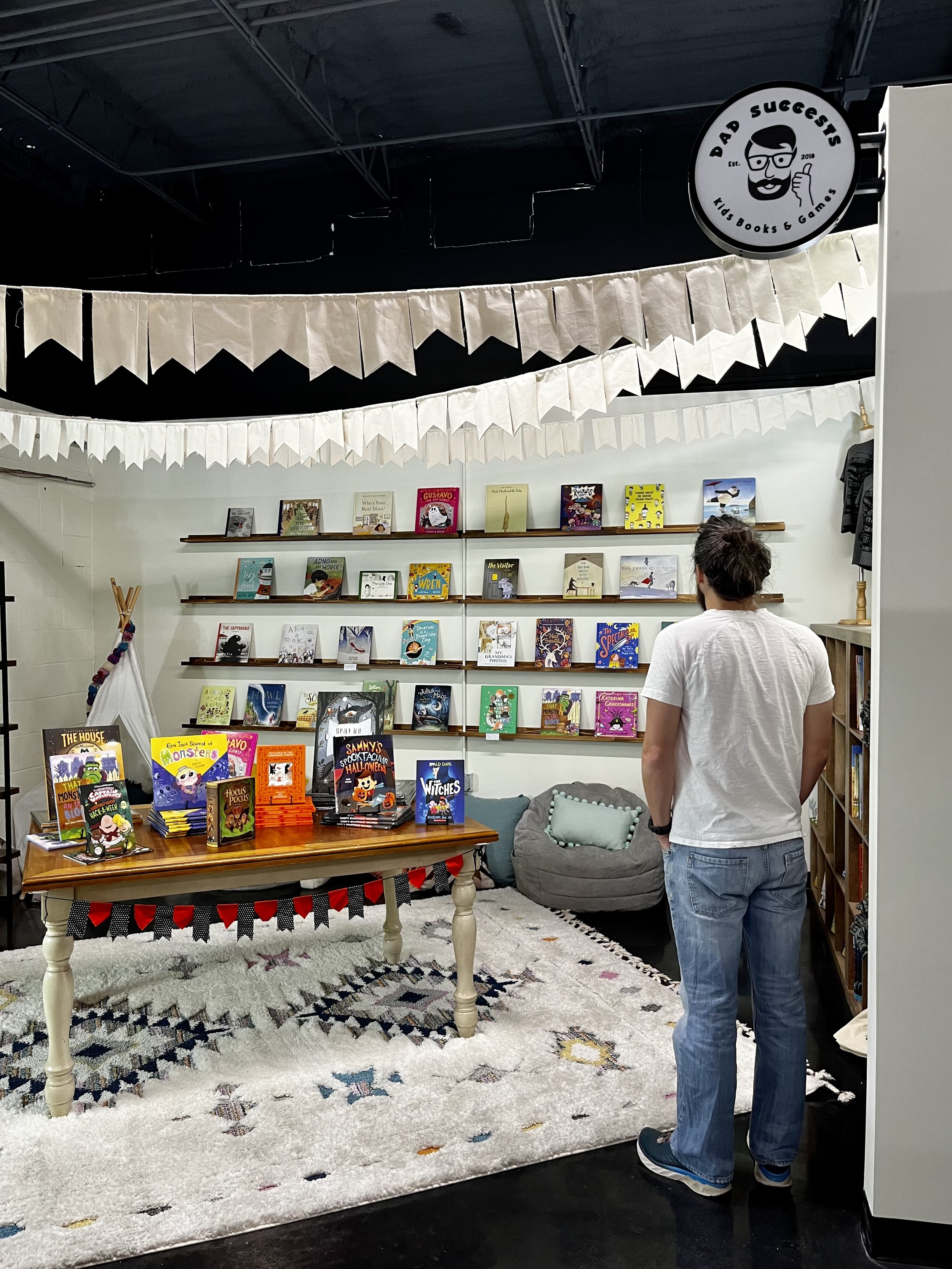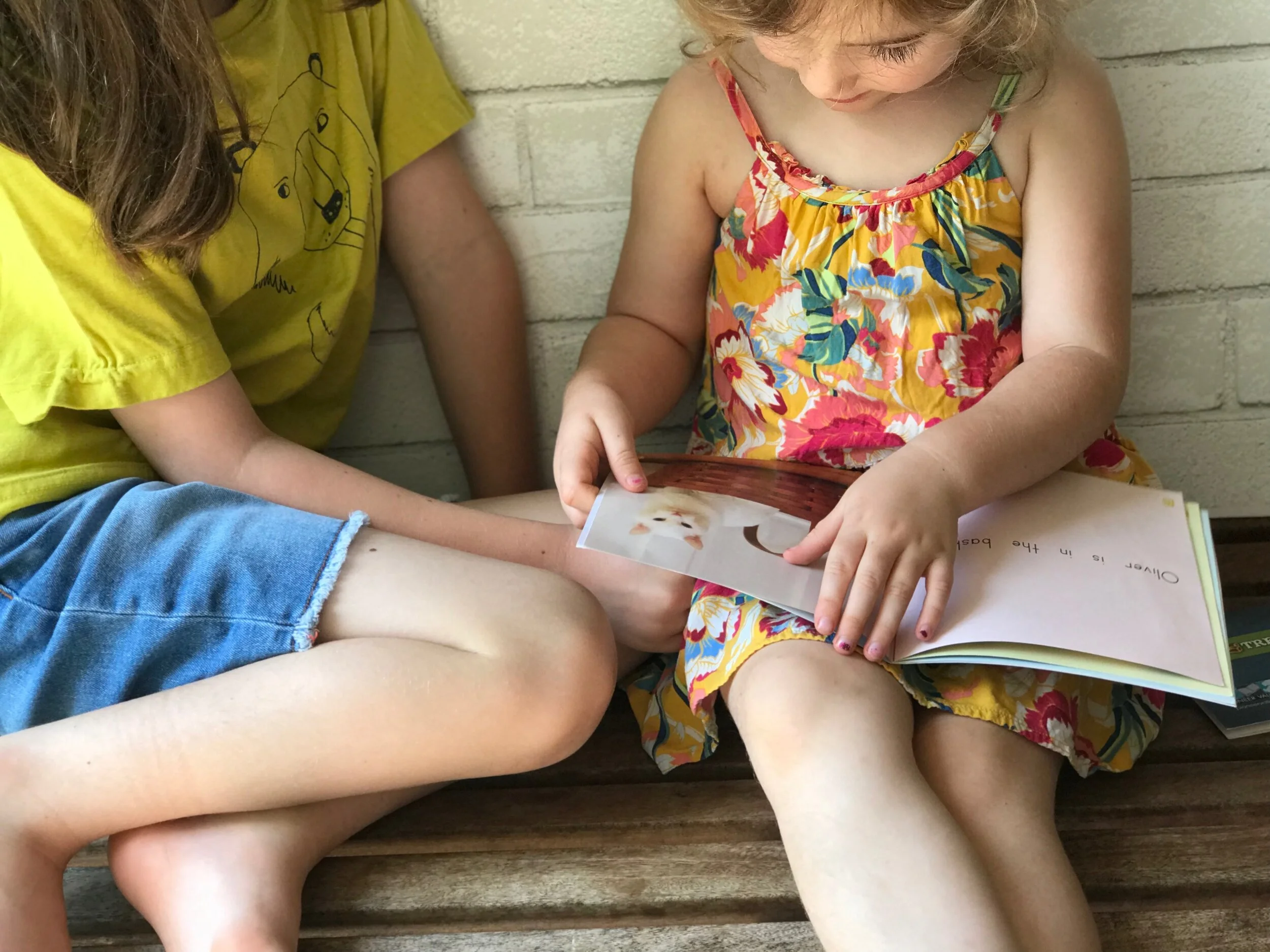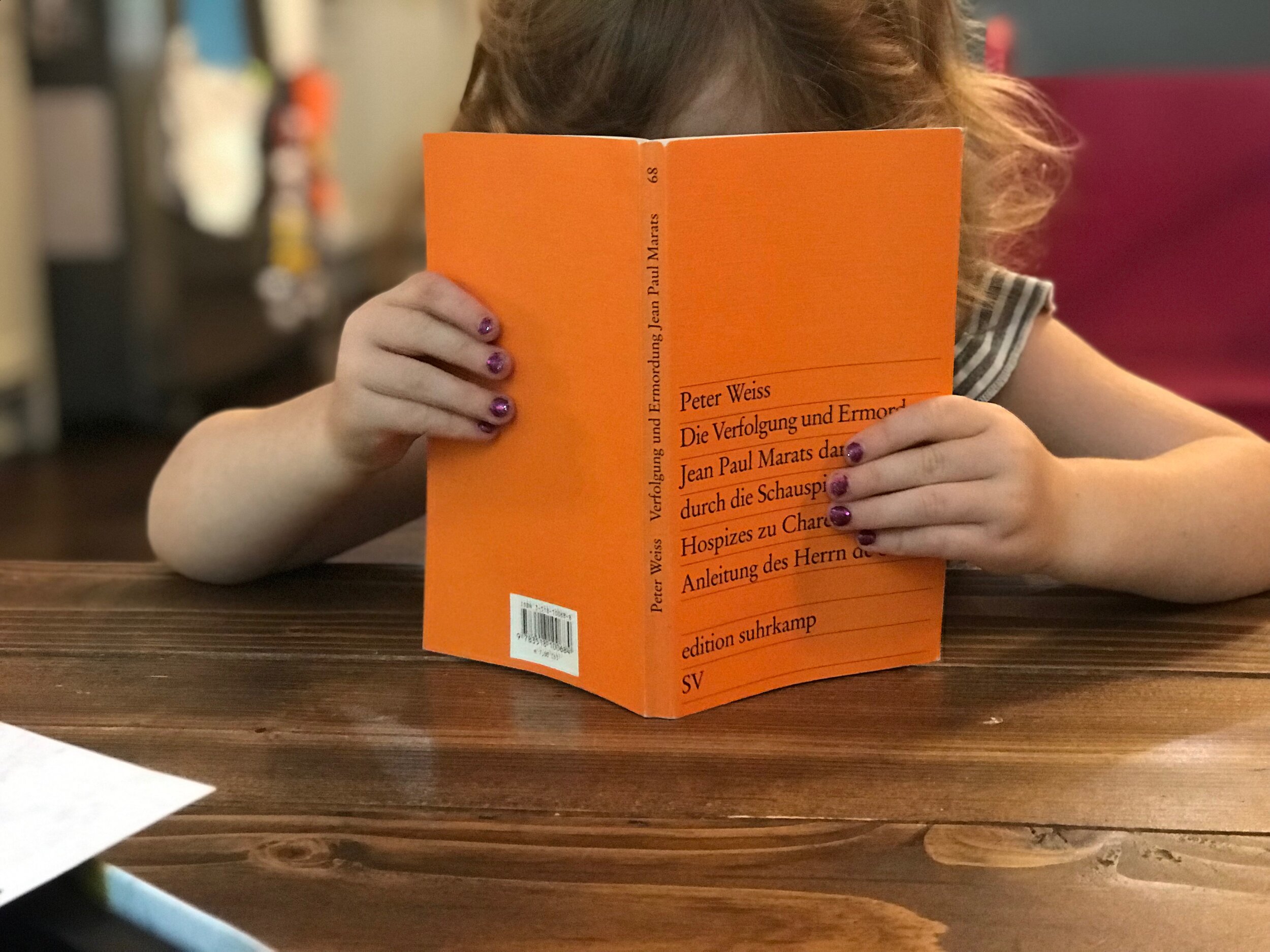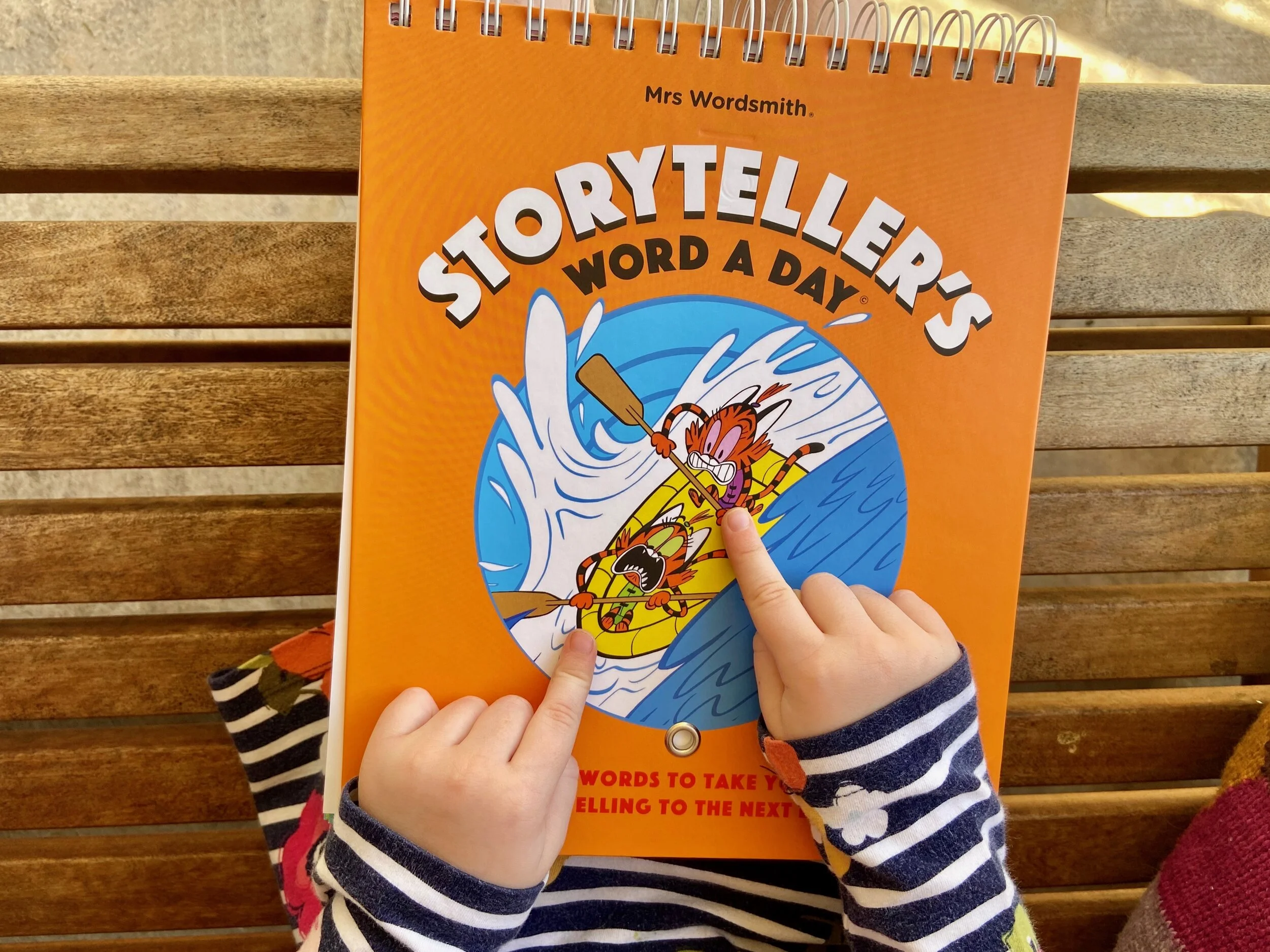Help Kids Love Books: Let Them Read What They Want
The 8th Dog Man graphic novel from Dav Pilkey came out this week, and our 7-year-old was very excited about it. In fact, it might be the first time he actually looked forward to a book that hadn’t released yet. Many of his other favorite series are complete, so we were able to buy them all at at once, but this time was different. He got a real taste of the anticipation of a favorite book.
Our little dude has read all of the previous Dog Man books multiple times with his mother - often at bedtime - but this week he reread through every single one of them by himself. He read each of the previous seven books over the course of just two days in preparation of this book launch, and it honestly made me feel a lot of happiness and pride to see him in action.
The way he devoured the new Dog Man book - Fetch-22 - on the day of release reminded me of the Harry Potter obsession during which I was fortunate enough to grow up. And I would also anticipate the release of the next Goosebumps book in much the same way when I was his age. I know that feeling of excitement he was experiencing very well. To me, it’s a sure sign of complete and total engagement in the world of reading - a sign of love.
When you think about it that way, I would hope you would join me in considering it absolute madness to try and take that away from a child. Just for the sake of argument, imagine that I was Bizarro Dad from an alternate dimension. Instead of feeling pride as my son was excitedly rereading his graphic novels, imagine that I grabbed the book out of his hand, told him he’s read that book too many times, handed him a copy of The Giver, and told him to read a real book.
Hopefully that sounds crazy to you, but, despite the constant and consistent efforts of passionate artists and professionals - adults all over the world are still really blowing it just like this. Maybe they don’t blow it quite so dramatically, but they still get in the way of falling in love with reading nonetheless. Parents and teachers all over the country are still telling kids what books they should and shouldn’t read, and when they should read them.
And I’m not even talking about the depressing opposition to Captain Underpants that has led it to being one of the most banned books of all time - that’s an entirely different crazy conversation. I’m simply talking about the unfortunate opinion that graphic novels, comic books, picture books - or any books that simply aren’t on the “correct level” for a child - are inherently inferior for a child’s development in some way. It’s mind-boggling, and it’s flat-out wrong.
There’s a very good chance that I’m preaching to the choir with this article, but I’d be willing to bet there are also quite a few parents, teachers, and librarians reading this who have, at one time or another, questioned whether they should allow their kids to check out the same graphic novel from the library every single week. And my answer to them is a resounding YES. Please embrace and encourage book choice and reading for pleasure at each and every opportunity.
Many advocates for letting children choose their books like to say “reading is reading.” But I actually disagree with that phrase. All reading is not good reading - especially for reluctant readers. There’s a type of reading which is the archenemy of the reluctant reader: reading for school. Or any reading they’re forced to do for that matter. Basically, if they are never reading for pleasure, they’re just learning to hate reading more. It’s a sad state of affairs when reading becomes nothing more than homework and chores.
If you’ve ever tried to educate or parent a child before, or even met a child before, you’re probably aware that they’re generally averse to being told what to do - even if your intentions are entirely benign. It’s a common defect in their programming, and it requires an intricate knowledge of workarounds. So it really should come as no surprise to anyone that telling kids what they should read is the absolute kiss of death for developing their love for reading.
That’s why it’s incredibly important to embrace every single moment that children choose their own book, and choose to read for fun - beginning at a very young age. No matter how benign you think your intentions are, you’re cutting off your nose to spite your face if you ever say an ill word about the books they choose, or, even worse, stand in the way of their reading for pleasure.
Now, don’t get me wrong - I certainly have my own strong opinions about the quality of books. But I would never let that get in the way of our kids’ love of reading. There’s nothing wrong with exposing your kids to your favorite books and making them readily available in the house. You can read them aloud every night as they’re growing up. You can lay your favorites out on the coffee table, and even hide them all over the house like Easter eggs. Just let them choose what they read.
Instead of saying “reading is reading”, I like to say “reading for pleasure is reading for pleasure”. If you’re reading for pleasure, you’re doing it right. I don’t care if it’s the same book again. I don’t care if it’s too easy or too hard. I don’t care if it’s a comic book. I don’t care if it’s a dictionary, or a joke book, or the back of a cereal box. Reading for pleasure is reading for pleasure.
How to Help Kids Develop a Love for Reading
1. The Power of Choice
This is a simple one, and the most important. Let kids choose what they want to read. Period. End of story. Choice is the secret to buy-in and engagement. And it’s absolutely vital to embrace every moment that children are having a positive, personal relationship with books. I think it’s helpful to think of reading as an art, as opposed to a science. It’s a relationship you’re trying to build, not a skill you’re trying to hammer into their head.
When you go to the library, let them pick out whatever books they want, and as many as you can carry. They’re simply so much more likely to choose to spend their free time reading that way. And it’s little moments like that that will turn into a lifetime love of reading.
2. The Importance of Rereading
I’m a big believer that rereading is incredibly important. Kids absolutely love to hear the same story again - especially when they’re very young. And that never completely goes away when they get older. After all, adults love to reread their very favorite books as well. And, quite often, it’s the stories they fell in love with when they were younger that they want to revisit.
When kids are little, it’s best to indulge their desire to hear the same picture book over and over - as many times as you can possibly stand it. They’re not only internalizing a plethora of reading building blocks through the repetition, but they’re demonstrating a genuine excitement about reading that needs to be nurtured and fed. They’re falling in love with the entire process with you by their side.
And when they grow up and turn into little independent readers - the job of the adult becomes much easier. You don’t have to read the same picture book over and over again anymore. All you have to do is stay out of the way and let them do it themselves with their favorite chapter book, or encyclopedia of dinosaurs, or graphic novel.
3. Avoid Turning Reading into a Chore
Of course the obvious culprit here is the school system, but that’s simplifying things far too much. Reluctant readers start at home, and they’re reluctant for a reason - they don’t associate reading with any positive memories.
As a case of preventative medicine, the obvious solution is to build a positive relationship with books by reading to your kids every day for their entire childhood. But, assuming it’s too late for that, the least we can do is avoid turning reading into a despised chore - both in school and at home.
I cringe at the thought that a child’s ENTIRE relationship with books is what they’re forced to read for their English class - reading for the sole purpose of half-hearted book reports and logging minutes spent reading at home for homework. It’s very hard to disassociate that dread from the reading process.
Now, I admit, it’s a bit of a catch-22 when it’s a teacher’s job to teach a 12-year-old, reluctant reader how to read when they have no interest and no support at home. But I think it’s still important to be aware that building positive and personal experiences with books is the goal.
4. Increase Exposure and Availability
Again, the absolute best case scenario for developing a love for reading is to increase positive exposure to books - and to minimize negative associations. That means reading together with your kids as often as possible, starting as early as possible. It means surrounding your kids with good books, making them a part of their lives, and building memories to cherish.
Of course being a reading role model is invaluable during this process. If children grow up reading with their parents, frequenting the library with their parents, and seeing their parents reading for fun - half the battle is already won. Reading is a part of their lives.
After that, all you have to do is make sure books are always available to them - whether that means a house full of books or lots of trips to the local library. Let them pick what they want. Always say yes to a book. Surround them with books they’re legitimately interested in, and, for goodness’ sake, stay out of their way.
What are your kids’ favorite books? Are there any they like to reread over and over again? Do you have any tips for raising voracious readers? Let us know in the comments!











